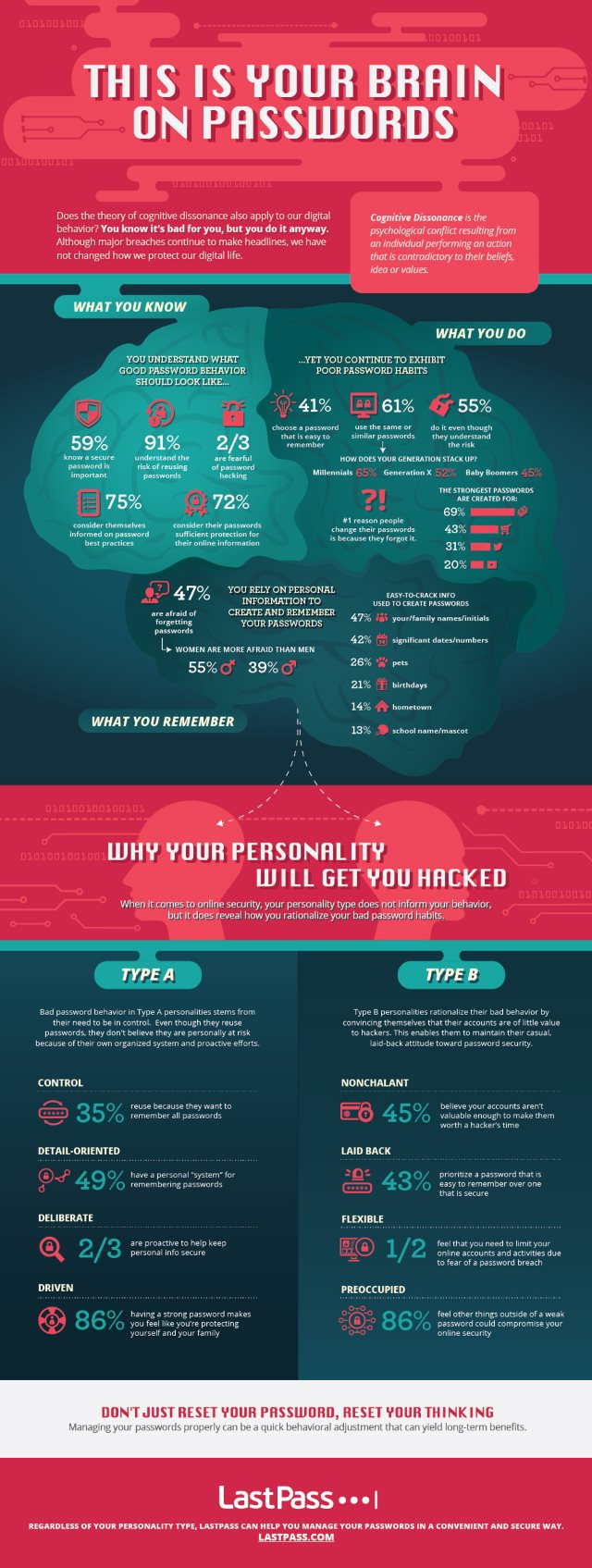Does your personality make you more likely to get hacked?

LogMeIn the company behind the LastPass password manager has released the results of a survey looking at consumer psychology, behavior and attitudes when it comes to managing personal passwords.
Among the findings are that 61 percent of respondents use the same or similar passwords across accounts, and 55 percent of them do it even though they understand the risk. Also more than a third (39 percent) create more secure passwords for their personal accounts than their work accounts.
Only five percent of respondents didn't know the characteristics of a secure password, with the majority of respondents understanding that passwords should contain uppercase and lowercase letters, numbers and symbols. Yet when attempting to create secure passwords, 47 percent of respondents still included family names or initials. Another 42 percent used significant dates or numbers and 26 percent the family pet -- all information that could be easily obtainable through social media or a casual acquaintance.
So why do people take risks with their passwords? Those identifying as Type A personalities (highly, organized, status conscious, ambitious) don't believe that they are at an increased risk by reusing passwords because of their own proactive efforts, which implies their behavior stems from their need to be in control. Type Bs on the other hand (more creative, less focused on winning) believe they need to limit their online accounts and activities due to fear of a password breach, but by convincing themselves that their accounts are of little value to hackers, they are able to maintain a casual, laid-back attitude towards password security. So, while personality types don't determine poor password habits, they do provide insight around why people behave as they do.
"Developing poor password habits is a universal problem affecting users of any age, gender or personality type," says Joe Siegrist, VP and GM of LastPass. "Most users admit to understanding the risks but continue to repeat the behavior despite knowing they're leaving sensitive information vulnerable to potential hackers. In order to establish more effective defenses, we need to better understand why individuals act a certain way online and a system that makes it easier for the average user to better manage their password behavior".
You can find out more about the findings on the LastPass blog and there's a summary of the findings in infographic form below.

Image Credit: W7 / Shutterstock
